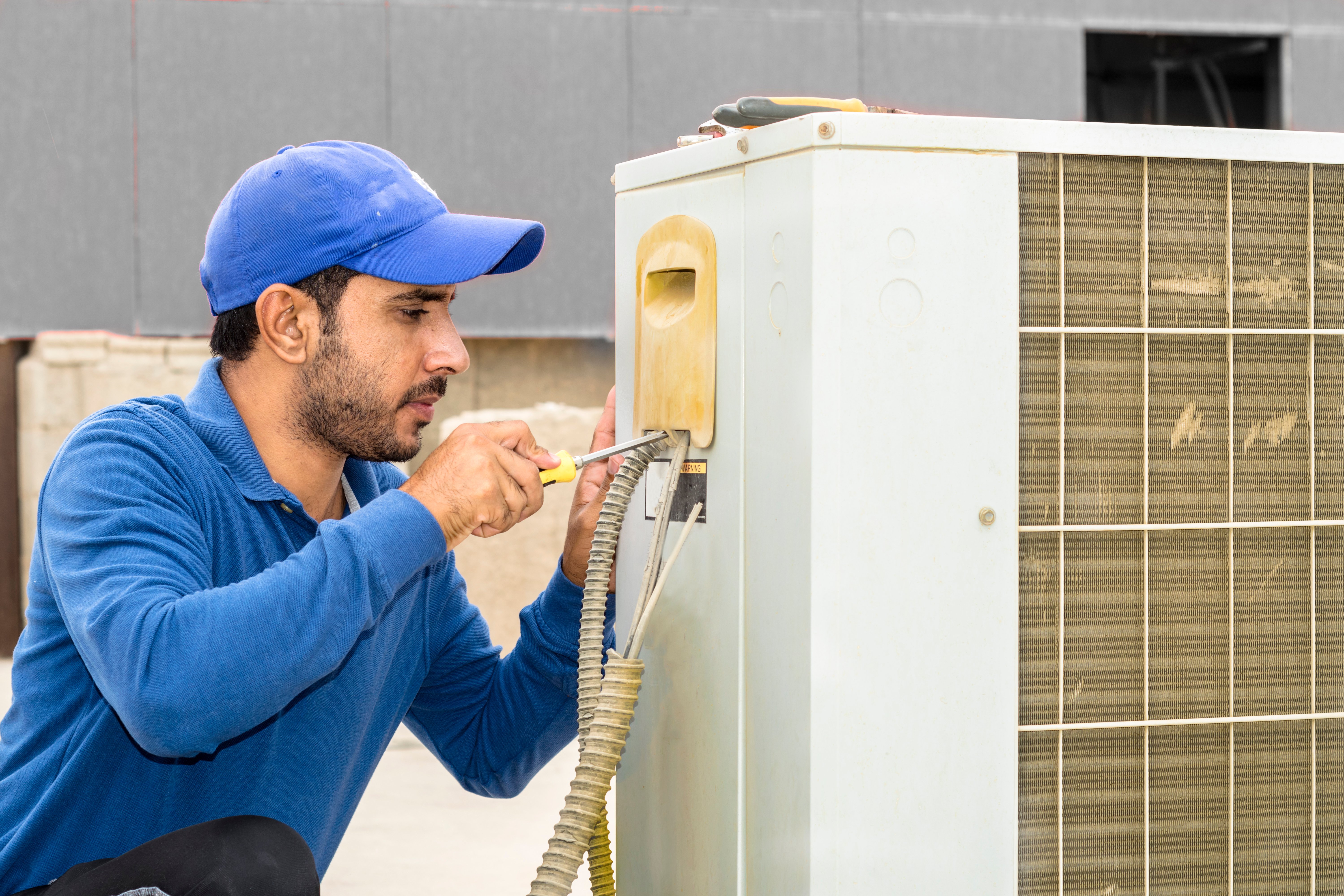Updated December 2025
Checking out your options for a career in the skilled trades? Considering HVAC, but not exactly sure what all is involved?
HVAC technicians and mechanics are service experts who work with heating, ventilation, and air conditioning systems. They install and calibrate units, repair and replace parts, carry out inspections, and conduct safety testing. They work in residential, commercial, and industrial settings.
Sound interesting? Of course, every job has its upsides and downsides. Before you go ahead and sign up for HVAC training, you need a solid understanding of the main benefits and drawbacks to choosing this trade.
This list is an excellent place to start. These are the top pros and cons of working in HVAC.
Pro: steady Demand for HVAC Mechanics in Ontario
In the latest report from the Government of Canada Job Bank, HVAC mechanics in Ontario get four out of five stars for employment outlook and demand. And the provincial government says HVAC techs have a good job outlook through 2026.
The bottom line? Skilled HVAC techs can find plenty of opportunities.
Con: Working On Call & Dealing with Seasonal Demand
Working in HVAC often means dealing with last-minute service calls and varying demand that depends on the season. For example, you may get called in to work evenings or weekends. And some HVAC mechanics find they have fewer job options during the winter months.
But it’s not all bad news. Working late or on holidays can add up to overtime pay. Plus, the Job Bank shows that 66 per cent of HVAC mechanics in Ontario work all year round—while only 34 per cent work just part of the year.
Still, if you’re not prepared to handle emergency calls and put in some extra hours, a career in HVAC is probably not for you.
Pro: Many HVAC Career Options
One of the biggest pros of working in HVAC is the range of available job options. There are opportunities in residential, commercial, and industrial settings. Not to mention the chance to start your own HVAC business.
Common paths include:
- Working in the construction industry for heating and cooling contractors (most popular option)
- Working for commercial establishments, like grocery stores, ice rinks, restaurants, and processing plants
- Working in HVAC sales
- Working in the food storage, transportation, and processing industry
- Working as a gas technician (because many HVAC units run on propane/gas, you need a gas technician certificate to get started in this field)
- Working in sheet metal (building and installing heat ducts, ventilation systems, furnace systems, etc.)
Con: HVAC Work is Physically Demanding
Like many construction trades, HVAC can take a toll on your body. You’ll probably spend a lot of time on your feet and have to squeeze into some tight corners.
Working in attics, basements, and crawl spaces can be hard on your back. And the hours can be long, too.
Expect some heavy lifting, and you may have to work at heights (for example, installing rooftop units). Safety is key!
Any pre-apprenticeship HVAC training program worth its salt includes in-depth safety training and certificates. That's the kind of knowledge employers are looking for in new apprentices.
Pro: HVAC Mechanics Can Make Good Money
According to the Job Bank, HVAC mechanics in Ontario make a median salary of about $77,000 per year.
At the highest end of the pay scale, they’re making around $121,000 per year.
Keep in mind, you won’t start out earning that kind of money. As a total newcomer (apprentice), you will probably earn around $44,000 per year. But you can work your way up the pay scale with experience and certification.
Con: The Learning Never Stops
This could be both a pro and a con, depending on how you look at it. The HVAC field is always evolving, with tons of new technologies and products to learn about. You can’t just get your licence, kick back, and forget about building new skills. That is, not if you want to be successful.
This trade is known to be challenging. Every day brings new problems to solve, new things to learn, and new ways to make customers’ lives better.
If you’re not motivated to push yourself and don't want a trade that challenges you, HVAC isn’t your path.
Pro: No Threat of Outsourcing or Automation
Worried about starting a career that ends up getting shipped overseas? Or taken over by a robot?
Many industries are threatened by outsourcing and automation, such as manufacturing, call centres, and IT.
HVAC, however, is not one of them! We’ll always need real, live, local HVAC technicians and mechanics to install and service heating, cooling, and ventilation systems.
It’s true that technology will continue to optimize how these systems work. But real humans (with licences) will always be needed to keep them running safely, make product recommendations, and manage installation and servicing.
think you'd like to work in hvac?
Now you know the most common pros and cons of a career in HVAC. If you feel confident this path is for you, your next step is to learn about training.
We strongly recommend setting up a personal advising appointment with an admissions advisor. You’ll get the chance to:
- Tour the campus
- See the shop floor
- Meet instructors
- Talk about your career plans
- Learn about costs and financial aid options
An advisor will make sure you’re a good fit for the HVAC program before you enrol. And you’ll be able to see if the school is a good fit for you (just as important!)
Click below to explore Herzing's HVAC program and chat live with an advisor. We're here to help!






